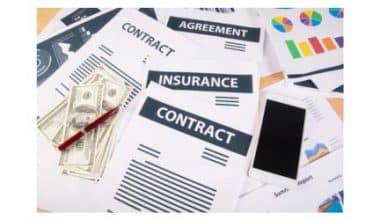There are a wide variety of business insurance plans available to you as a small business owner. It’s easy to write off purchasing insurance as yet another chore, but having adequate protection from a reliable provider might make all the difference in the event of a claim. Keep reading to learn more about the best cheap small business insurance in Florida and cheap small business health insurance.
What Is Cheap Small Business Insurance?
Cheap small business insurance refers to affordable insurance coverage tailored for small businesses. These policies are designed to offer basic protection without burdening small business owners with high costs. Generally, they include essential types of coverage, such as general liability insurance, which protects against third-party claims of property damage, bodily injury, or advertising injury. Additionally, property insurance covers physical assets like buildings and equipment, shielding businesses from losses due to theft, fire, or other disasters. To keep premiums low, insurers might offer limited coverage or higher deductibles, meaning businesses pay more out of pocket before insurance kicks in.
While cheap small business insurance can be cost-effective, it’s vital for business owners to carefully assess their specific needs. Depending on the nature of the business, industry risks, and regulatory requirements, additional coverage like professional liability, workers’ compensation, or cyber liability insurance may be necessary. Small business owners should also review policy terms and conditions, ensuring they understand what is covered and what is not. It’s advisable to compare quotes from multiple insurance providers, considering both the cost and the comprehensiveness of coverage. By striking a balance between affordability and adequate protection, small businesses can safeguard their operations without straining their finances.
How Do I Get Cheap Business Insurance?
Using these four guidelines, you may get the insurance that your business needs at a cheap price:
#1. Find Cheaper Business Insurance by Shopping Around
You already do your homework and shop around before making a major purchase for your company. Similarly, with regard to insurance,
There is a vast variety of coverage types and rates available from various insurance companies. So, what are the most effective methods for comparing business insurance policies?
You could get quotes for various insurance plans by contacting several providers individually. There is a simpler approach, thank goodness.
Instead, you can acquire rates from multiple business insurance providers by contacting an insurance agent or broker. When looking for an insurance broker or agency, be sure they work with numerous firms rather than just one.
They will research the market to locate a reasonable policy that covers all of your bases for commercial insurance. And they’ll locate competitive pricing and insurance plans from a variety of providers that suit their needs. In addition, you can inquire as to whether or not your policies offer the protections necessary to carry out contracts, adhere to regulations, or lessen industry-standard risks.
#2. Get All the Coverage You Need in One Convenient Package
Various types of business insurance protect your company from various dangers; it is recommended that you obtain multiple policies. Buying several policies at once could save you money on your company’s insurance premiums.
Getting a business owner’s policy, or BOP, is one option. Common coverages for businesses are liability, property, and even interruption to operations. The total cost of a BOP is usually less than the cost of the three individual policies if purchased separately from the same insurer. In fact, not all insurance companies provide these plans individually but rather as part of a bundle.
Getting all your commercial insurance from the same company is not only more convenient but it can also save you money. As of this writing, numerous policy discounts from both Next Insurance (10%) and Hiscox (5%) are available.
#3. Adjust Your Policies to Fit Your Needs
A company’s insurance rates will go down in proportion to the amount of coverage it provides. There are a number of ways in which you can modify your policies’ levels of protection:
- Selecting a more costly deductible.
- Limiting your insurance coverage
- Altering the market value of your home.
Every insurance policy has a deductible and a maximum payout. A greater deductible means that you, as a business owner, will be responsible for a larger portion of any costs incurred before insurance kicks in. And if your policy’s limit is too low, it may not pay for costly claims in full.
When it comes to commercial property insurance, you have the option of selecting either “actual cash value” or “replacement cost coverage.” The insurer will determine the replacement cost of the damaged or destroyed property in accordance with these standards. Since the value of property decreases over time due to depreciation, actual cash value insurance policies are more cost-effective than replacement cost policies.
#4. Risk Management Can Help You Limit Claims
Static factors like your industry, the size of your workforce, and the value of your assets play a significant role in determining the cost of your business’s insurance policy. However, the frequency and size of your claims are two crucial variables that you may influence.
The frequency and severity of accidents and mistakes can be reduced by taking steps to decrease hazards in the workplace. Here are some options:
- Making sure workers are properly trained to handle potentially harmful materials and tools, as well as complex activities.
- Investing in programs or resources that help prevent hackers from gaining access to private consumer information.
- Making plans for handling any hazards that could cause injuries or mistakes
- Reducing the likelihood of disasters like water leaks and electrical fires by maintaining your property well.
Materials on risk management are sometimes made available to policyholders by insurance firms. For instance, Travelers provides its employees with access to hundreds of safety videos as well as instruction in ergonomics, industrial hygiene, and property protection, among other topics.
The cost savings on business insurance might not immediately result from implementing new safety measures in the workplace. However, you can reduce the magnitude and frequency of your claims, which in turn should reduce your premiums in the future.
What Insurance Do You Need for a Small Business?
The nature and size of your firm should guide your coverage options when shopping for small business insurance. General liability, commercial property, and workers’ compensation insurance are the most typical kinds of insurance for small businesses.
#1. General Liability Insurance
In the event that your business causes bodily injury or property damage to a third party, general liability insurance will protect you financially. Slander, libel, and copyright infringement are all protected against, as are other forms of reputational harm.
General liability also covers legal expenses, such as hiring a lawyer and paying any judgments or settlements rendered against your company.
#2. Commercial Property Insurance
Your company’s tangible assets are protected against disasters like fire and theft with commercial property insurance. Items such as office furniture, office equipment, business files, inventories, and supplies are included. It’s also possible to get protection for your commercial structure.
You can also hear the term “business property insurance” used to refer to commercial coverage.
#3. Workers Compensation Insurance
If an employee becomes sick or hurt on the job, workers’ compensation will pay for their medical expenses. All necessary expenses, such as medical attention, rehabilitation, and pay replacement, will be covered. If an employee dies from a work-related sickness or injury, his or her family may be eligible for death benefits.
Even if you only have one worker, most states mandate that you have workers’ compensation insurance.
#4. Commercial Auto Insurance
Commercial auto insurance covers the cars, trucks, and vans used by your company.
Using a personal vehicle for commercial purposes is typically not covered by a standard auto insurance policy. Without commercial auto insurance, any claims you make in the event of an accident or damage to a company vehicle could be refused, leaving you responsible for the whole cost of repairs or replacement.
#5. Errors & Omissions Insurance
In the event that a client or customer alleges that you provided subpar services due to an error on your part, errors and omissions insurance (E&O) will cover the resulting legal fees and damages.
A different name for E&O coverage is “professional liability insurance.”
Why Is My Business Insurance So Expensive?
Here are some of the top reasons why your business insurance is expensive:
#1. More Claims
Your risk profile is just hypothetical at this point. However, this estimate is grounded in hard data, specifically, claims submitted by millions of similar businesses.
More claims, whether justified or not, mean more money paid out. And when insurers have to shell out cash, they have to charge more in premiums. Just the way insurance works like that.
They would be unable to meet future claim payments if they depleted their funds. In the long run, this causes everyone’s insurance rates to go up (not just the claimants).
#2. More Legal Action
Many customers’ initial reaction when something goes wrong with a business is to file a lawsuit, whether it be because of poor or misunderstood counsel, a faulty product, or an accident.
Let’s pretend Jane breaks her wrist at your hardware store when she stumbles over a doll. She intends to make a claim on your general liability insurance to pay for her medical expenses. The cast is removed after a few weeks, and she feels well.
This could have been a realistic possibility in the past few decades. Jane may require more than just medical attention at this point. While she is healing, she may decide to hire a lawyer and sue you.
You will need to use the funds from your general liability policy to pay for your own legal counsel (and maybe pay damages to Betty if she prevails).
No matter how you feel about it, this is the reality of doing business in the twenty-first century. Moreover, in comparison to private residences, corporations are subject to far more legal action.
Even cases that are dismissed at a later date might rack up significant costs. The plaintiff in a frivolous lawsuit may never see a dime, but their lawyer and YOURS will make out like bandits. Insurers do more than merely cover repair costs. Legal costs are also covered.
#3. Broader Protection
Why do policies for small businesses cost more than individual coverage? More ground is usually covered.
In general, commercial insurance policies have more comprehensive coverage and greater limits than individual policies. In the event that a third party is hurt and decides to sue your company (something that is not covered by your personal policy), commercial auto insurance coverage can help preserve your firm’s assets.
The policy limits for commercial vehicles are typically $1 million, whereas the limits for personal vehicles are often $500,000. To increase your personal liability coverage to $1,000,000, you will need to purchase an extra policy, such as a personal umbrella.
As a business owner, your requirements take precedence. Your increased risk may result in higher premiums, but it should also often entitle you to greater protection against a broader range of events.
The cost is comparable to buying twice as much cereal for the same price.
In light of this, here are certain policies you should discuss with your agent:
- Business Interruption
- Cyber Risk / Data Breach
- Error & Omissions
- Employment Practices Liability
- Commercial Auto Insurance
- Business Owner’s Policy (BOP)
- Property Damage / Liability
- General Liability Insurance
- Workers’ Compensation
Can You Write Off Small Business Insurance?
Yes, small business insurance premiums are generally tax-deductible expenses for businesses in most jurisdictions, including the United States. These deductions can apply to various types of insurance, such as liability, property, and health insurance. Deducting insurance costs can significantly reduce a business’s taxable income, lowering its overall tax liability. However, it’s crucial to ensure that the insurance policies are directly related to the business and that the coverage is necessary for the operation of the business.
Additionally, tax laws can be complex, so it’s advisable for small business owners to consult with a tax professional or accountant to ensure proper compliance and maximize eligible deductions while filing taxes. Keeping accurate records of insurance payments and policies is essential to substantiate these deductions during tax filing.
Best Cheap Small Business Insurance
The best cheap general liability insurance providers will provide coverage with limits that are just right for your business, industry-specific customization options, responsive claims and customer support. We looked at more than 20 insurance firms and narrowed it down to the five that offer the best value for money when it comes to general liability insurance for small businesses.
#1. The Hartford
The Hartford is not only the company we most highly recommend for general liability insurance, but they also provide very competitive rates. With its flexible pricing method, you may tailor the coverage to the specific demands of your company at a price you can live with. It also includes access to professional in-house claims adjusters.
Based on our analysis of the firm’s financial stability and the insurance it offers, we gave it a score of 4.56 out of 5. More ease of use, such as mobile apps for commercial lines policy management, certificate of insurance creation, and claim filing, would have resulted in an even higher rating.
#2. State Farm
According to the most recent J.D. Power’s Small Commercial Insurance Study, State Farm comes in second for customer satisfaction. The NAIC complaint index is higher than our top option, Chubb, but the company has continuously placed in the top three insurers for customer satisfaction over the last three years.
In J.D. Power’s Small Commercial Insurance Study, State Farm received 856 out of 1,000 points for customer satisfaction, with competitors such as Chubb and Nationwide not far behind. J.D. Power questioned 2,254 firms with 50 or fewer employees on their experiences with invoicing and payment, claims, provider interaction, insurance offerings, and pricing.
State Farm provides paperless invoicing and autopay options for small businesses such as restaurants, professional services, and stores. BOP packages, surety and fidelity bonds, and farm and ranch insurance are all examples of commercial insurance products.
Professional liability, errors and omissions liability, employment practices liability insurance (EPLI), liability insurance for non-profit organizations, and liability insurance for directors and officers of condominium and homeowners associations are all part of the company’s extensive liability coverage.
Additional choices for insurance include:
- Commercial Auto
- Inland Marine Insurance
- Workers’ Comp
- Group Life Insurance
- Retirement Plans
#3. Nationwide
Our research led us to conclude that Nationwide is the best small business insurance company for general liability policies since it offers a wide range of endorsements, including those for liquor liability and personal and advertising harm. This flexibility is especially helpful for owners of small businesses that operate in highly specialized fields.
Nationwide provides a comprehensive suite of products for entrepreneurs, including commercial vehicles, property, liability, and workers’ comp insurance.
In addition, business owners can supplement Nationwide’s general liability insurance with additional coverage, including:
- Fire legal liability: Protecting you from legal action if you’re responsible for fire damage to a rented property
- Auto liability: Includes both short-term automobile rentals and coverage for employees who use their own vehicles for work-related purposes.
- Umbrella policy: Boosts existing liability coverage above its limits.
- Employment practices liability insurance (EPLI): Defamation, invasion of privacy, wrongful termination, and other torts are all covered.
Personal and advertising injury coverage, liquor liability, directors and officers liability, and product and finished operations liability are some of the other liability endorsements available.
#4. Progressive
Because it operates in every state and provides insurance for so many different kinds of commercial vehicles, we recommend Progressive to small businesses looking for cheap commercial auto insurance. Policyholders can also make any necessary changes to their coverage at no additional cost and enjoy an unrestricted coverage area (in most states).
Progressive’s commercial vehicle insurance stands out since it covers a wide range of vehicles, including semis, sedans, SUVs, vans, trucks, buses, tractors, and trailers. Non-owned, hired, and hired-vehicle coverage is also included, in addition to the standard coverages of liability, property damage, medical payments, and uninsured motorists.
General liability, professional liability, workers’ compensation, health insurance, and cyber insurance are just some of the other options for protecting your company that Progressive provides.
#5. CyberPolicy
CyberPolicy is the best cheap small business insurance marketplace since it works with many different top-tier insurers (including those on this list), making it easy to compare prices. Customers who buy numerous plans from different providers together qualify for savings.
CyberPolicy is a marketplace for small company insurance coverage that works with major players like Chubb, Hiscox, Liberty Mutual, Nationwide, and BiBERK to make purchasing insurance easy. You can get a free quote from the provider and get coverage as soon as 24 hours later if you decide to buy a policy.
The following are some of the coverage types provided by CyberPolicy:
- Deception and crime
- Employment Law Responsibility
- LRO stands for “lessor’s risk only.”
- Legal responsibility for alcohol consumption
A licensed insurance professional who works in CyberPolicy’s online chat support can give you advice on the best commercial insurance plans for your company.
Cheap Small Business Insurance Florida
Finding affordable small business insurance in Florida requires careful research and consideration. Start by assessing your business’s specific needs. Identify the type of coverage required, such as general liability, property, or workers’ compensation insurance. Once you have a clear understanding of your needs, compare quotes from multiple insurance providers. Look for insurers that specialize in serving small businesses, as they often offer tailored coverage at competitive rates.
Consider joining local business associations or chambers of commerce, as they may have partnerships with insurance providers that offer discounted rates to their members. Additionally, explore online insurance marketplaces and comparison websites, where you can easily compare quotes from various insurers.
It’s crucial to read policy terms and conditions thoroughly to ensure you’re getting adequate coverage for your business activities. While seeking affordable options, prioritize reputable insurers with good customer service and a strong claims process, as reliability is key when it comes to insurance coverage.
Lastly, consult with insurance agents or brokers who specialize in small business insurance. They can help you navigate the complexities of insurance policies and find a cost-effective solution tailored to your business needs. Remember, while cost is important, the right coverage is vital to protecting your business in the long run.
Cheap Business Insurance Requirements in Florida
Wondering what kinds of cheap small business insurance you need to drive in Florida? There are numerous factors that affect each small business’s particular needs, including:
- Profession
- Number of employees
- Possibility of harm (A construction firm in Jacksonville, for instance, might be more prone to injuries and property damage than a bookkeeper.)
General liability, professional liability (sometimes known as errors and omissions), commercial property, and commercial auto insurance are all common policies for Florida’s small businesses to carry.
In the event of an accident on the job, many companies offer workers’ compensation insurance to pay for related medical costs and missed earnings. Many Florida businesses with staff must comply with this state regulation.
How Much Does Business Insurance in Florida Cost?
There is a wide range of insurance rates in Florida, depending on business type and size. It costs more to insure a construction company than a graphic design firm, for example, because the former is more likely to experience accidents and property damage. A company’s insurance premiums will rise in proportion to the size of its workforce and fleet of cars.
Getting a free quote and researching coverage alternatives is the best approach to determining the precise cost of business insurance.
Cheap Small Business Health Insurance
Finding affordable small business health insurance involves exploring various options and considering the specific needs of your employees and your budget. One approach is to research health insurance marketplaces, both federal and state-based, where you can compare different plans and find those tailored for small businesses.
Consider group health insurance plans, which are often more cost-effective than individual plans. Many insurance companies offer group health plans specifically designed for small businesses. By pooling your employees together, you can often secure better rates.
Another option is exploring professional or trade associations. Some industry-specific groups offer group health insurance plans to their members, which might be more affordable than individual plans.
Additionally, consider health maintenance organizations (HMOs) or preferred provider organizations (PPOs), which tend to have lower premiums compared to traditional fee-for-service plans.
Lastly, consult with insurance brokers who specialize in health insurance for small businesses. They can help you navigate the available options and find a plan that suits your budget while providing adequate coverage for your employees.
It’s essential to balance cost considerations with providing valuable health coverage for your employees, as their well-being is crucial to the success of your business.
What Is the Difference Between Liability and Public Liability Insurance?
Liability insurance is a broad category of insurance coverage that protects an individual or business from the risks of liabilities imposed by lawsuits and similar claims. It provides financial protection in cases where the insured party is found legally responsible for injuries or damages to others. Within this category, there are various types of liability insurance, including public liability insurance.
Public liability insurance is a specific type of liability insurance that provides coverage for businesses and individuals in case they are held liable for third-party injuries or damages that occur on their premises or as a result of their business operations. It typically covers situations where a member of the public, a customer, a client, or a supplier suffers injury or property damage because of the insured party’s actions or negligence.
In essence, public liability insurance is a subset of general liability insurance. General liability insurance can include coverage for a broader range of liabilities, such as product liability (injuries or damages caused by products), professional liability (errors and omissions in services provided), and employer’s liability (work-related injuries to employees). Public liability insurance, on the other hand, specifically focuses on liabilities arising from interactions with the public and third parties.
Why Can’t I Get Public Liability Insurance?
There could be several reasons why you might be having difficulty obtaining public liability insurance. Here are a few common factors that can affect your ability to secure this type of insurance:
- High-Risk Business: If your business operates in a high-risk industry or has a history of frequent liability claims, insurance companies may be hesitant to provide coverage. Certain industries, such as construction or hazardous material handling, are considered high-risk.
- Previous Claims: If your business has a history of liability claims, insurance providers might view you as a higher risk, making it challenging to find coverage. Insurers often assess your claims history when determining whether to offer coverage and at what premium.
- Lack of Safety Measures: If your business doesn’t have proper safety protocols and measures in place, insurers might be reluctant to offer coverage. Implementing safety practices can sometimes improve your eligibility for insurance.
- Financial Instability: Insurance companies assess the financial stability of a business before providing coverage. If your business is struggling financially, insurers might be cautious about offering coverage.
- Coverage Limitations: Sometimes, certain insurance companies might not offer public liability insurance due to the nature of your business operations or the specific coverage limits you’re seeking.
In addition, if you’re having trouble obtaining public liability insurance, it’s advisable to work with an experienced insurance broker.
Why Should I Get Cheap Small Business Insurance?: Bottom Line
While cost is a factor, cheap small business insurance offers financial protection without breaking the bank. It allows you to meet legal requirements, safeguard your business from unexpected expenses, and mitigate risks without a substantial financial burden. By finding affordable coverage, you ensure your business’s sustainability and protect your investments. However, it’s essential to strike a balance between affordability and adequate coverage to avoid compromising your business’s financial security.
Cheap Small Business Insurance FAQs
What is the cheapest insurance for a small business?
General liability insurance is the cheapest and most basic type of insurance for most small businesses.
Do I need public liability insurance?
Although it is not necessary by law, many employers will require it before hiring you. There are industry groups that won’t let you join unless you can prove you have adequate insurance coverage.
Similar Articles
- How Much Does Business Insurance Cost?
- BUSINESS INSURANCE INTERRUPTION: Meaning & How It Works?
- Business Insurance: Definition, Types & What Does It Cover?
- Business Insurance: Definition, Types & What Does It Cover?






